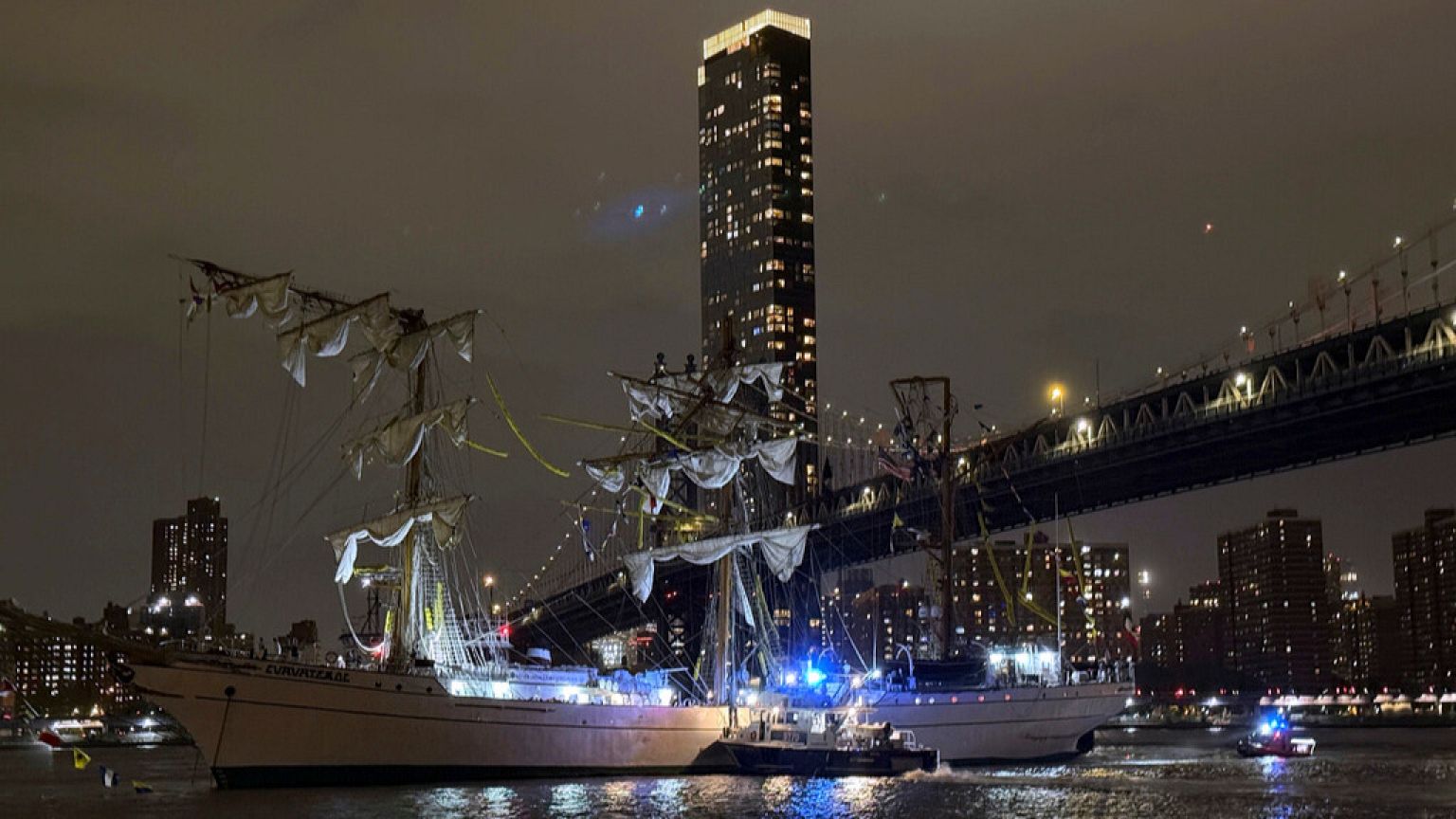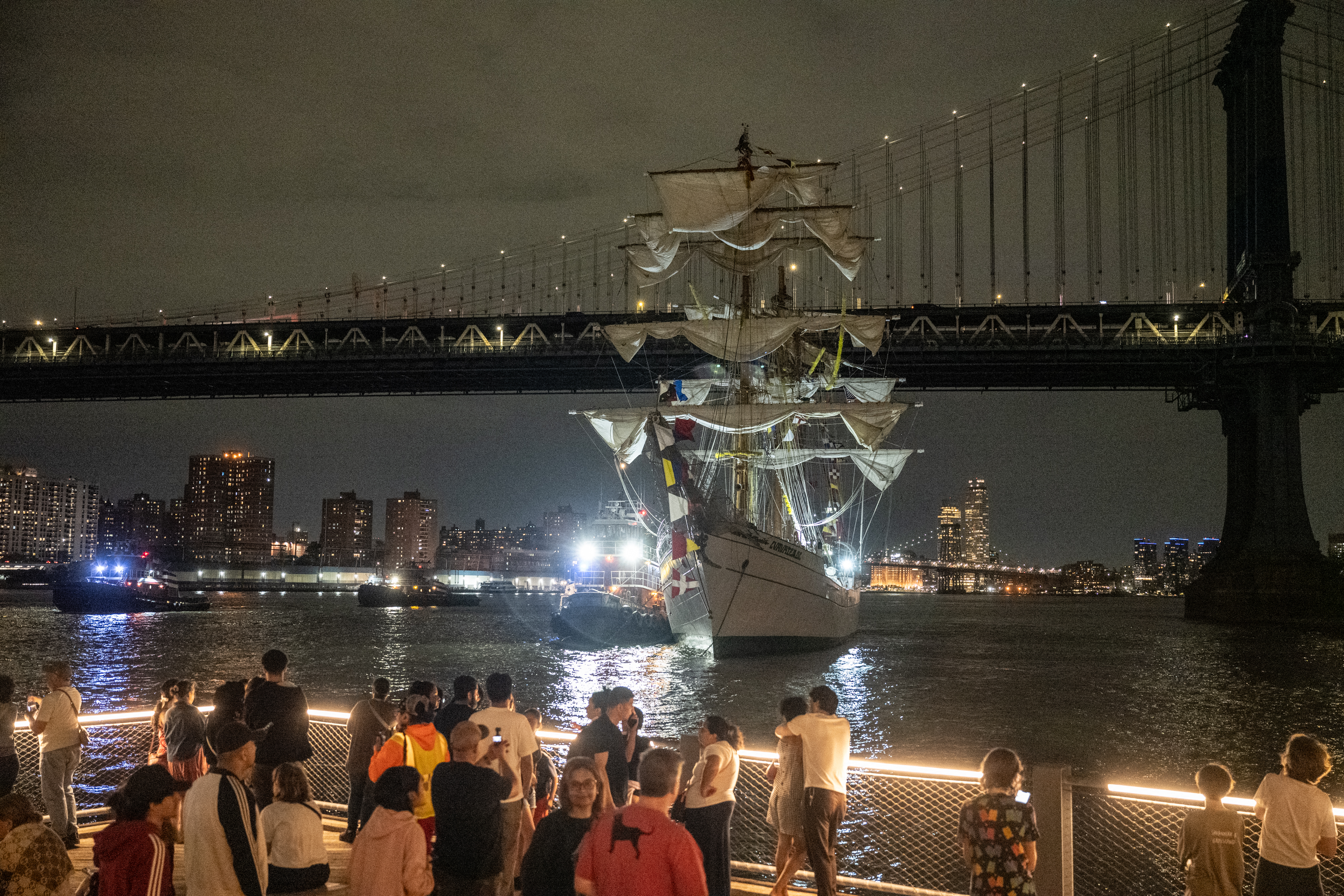Tragedy on the East River: Mexican Navy Ship Cuauhtémoc Collides with Brooklyn Bridge
On the evening of May 17, 2025, a routine departure turned tragic when the Mexican Navy's training vessel, ARM Cuauhtémoc, collided with New York City's iconic Brooklyn Bridge. The incident resulted in the deaths of two cadets and injuries to 19 others, casting a somber shadow over what was intended to be a celebratory voyage.

The Vessel: ARM Cuauhtémoc
Commissioned in 1982, the ARM Cuauhtémoc is a tall ship used by the Mexican Navy for training and diplomatic missions. Measuring approximately 297 feet in length with masts reaching up to 160 feet, the vessel has served as a symbol of Mexico's maritime heritage, visiting ports worldwide to foster goodwill and provide hands-on experience to naval cadets.

The Incident Unfolds
At approximately 8:26 p.m., shortly after departing from Pier 17 in Lower Manhattan, the Cuauhtémoc experienced a mechanical failure that led to a loss of power. This malfunction caused the ship to drift uncontrollably in reverse, its towering masts colliding with the Brooklyn Bridge. The impact snapped all three masts, sending debris onto the deck and into the East River. Videos captured by bystanders show crew members clinging to the rigging as the vessel struck the bridge.
Casualties and Emergency Response
The collision resulted in the immediate deaths of two cadets, identified as América Yamilet Sánchez and Adal Jair Marcos. Nineteen other individuals sustained injuries, with two reported in critical condition. Emergency services, including the NYPD, FDNY, and Coast Guard, responded swiftly, transporting the injured to nearby hospitals and securing the area to prevent further harm.

Investigation and Accountability
The National Transportation Safety Board (NTSB) has launched an investigation into the incident, focusing on the mechanical failure that led to the loss of power. Preliminary reports suggest that the ship's propulsion system malfunctioned, leaving it vulnerable to the river's currents. Additionally, the Mexican Navy has pledged full cooperation with U.S. authorities to determine the exact cause and prevent future occurrences.
Historical Context
While the Brooklyn Bridge has withstood various incidents over its 142-year history, this marks one of the most severe maritime accidents involving the structure. The bridge, with a vertical clearance of approximately 135 feet at average tide, has been a navigational challenge for tall-masted vessels since its completion in 1883.
Public Reaction and Mourning
The tragedy has elicited an outpouring of grief from both Mexican and American communities. Vigils have been held in honor of the fallen cadets, and condolences have been extended by officials, including New York City Mayor Eric Adams and Mexican President Claudia Sheinbaum. The incident has also sparked discussions about maritime safety protocols and the need for stringent checks on vessels navigating busy waterways.
Moving Forward
As investigations continue, both nations are committed to understanding the factors that led to this devastating event. The Mexican Navy has initiated plans to repair the Cuauhtémoc, ensuring it can return to its mission of training and diplomacy. Meanwhile, the NTSB's findings are anticipated to influence future maritime safety regulations, aiming to prevent similar tragedies.
The collision of the ARM Cuauhtémoc with the Brooklyn Bridge serves as a poignant reminder of the unpredictability of maritime operations and the paramount importance of safety measures. As both nations mourn the loss of young lives, there is a collective resolve to learn from this incident and enhance the safeguards that protect those who navigate our waterways.




